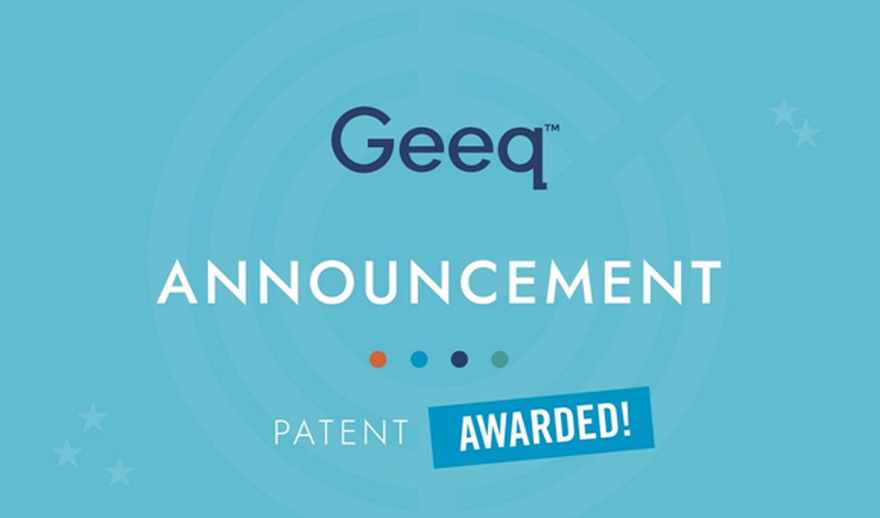The US approves Geeq’s security and scalability patents

In 1991, scientists Stuart Haber and Scott Stornetta described for the first time a cryptographically secured chain of blocks. Then in 1998, Satoshi Nakamoto released a white paper establishing the model for blockchain technology, which now serves as the underlying technology behind all cryptocurrencies, including Bitcoin and Ethereum.
In recent years, however, blockchain has evolved into a game-changing technology that permeates every facet of our lives. One of the companies pushing the boundaries in this space is Geeq, a blockchain innovation startup that’s building a new blockchain consensus protocol called Proof of Honesty(PoH). PoH empowers users who hold tokens on the platform to determine for themselves whether the network of validating nodes is behaving honestly.
Today, Geeq announced the approval of patents in the United States related to features for its protocol’s blockchain architecture, communication systems, and validation mechanisms.
The company’s CEO, Ric Asselstine, stated in a press release that the new features distinguish the protocol’s approach to scalability and security from those of proof-of-work and proof-of-stake blockchains:
“We are delighted to have achieved this formal recognition of the Geeq difference, which clearly separates Geeq from the crowded waters of current base-layer incumbents and enables us to occupy the blue ocean in the market.”
Geeq operates what it calls a layer-zero, multi-blockchain using a so-called “proof-of-honesty” validation mechanism — one of Geeq’s proprietary technologies that have just been granted a patent. In contrast to proof-of-work or proof-of-stake consensus, Geeq claims that its mechanism requires only one honest validator to confirm a transaction — meaning that bad actors have little to gain from fraudulent behavior.
According to details found in Geeq’s patent application, proof-of-honest allows the protocol to achieve consensus “by checking for lack of dissent rather than affirmatively trying to establish unanimity” and results in the blockchain being 99% Byzantine fault-tolerant.
As for scalability, Geeq uses a dynamic system that opens new channels (i.e., federated blockchains) when there is increased traffic on the network — which the company alleges makes the blockchain “infinitely scalable.” The patent application goes into more detail about the flexibility of the protocol:
“If the transactions load becomes too large for one chain to handle, new federated instances can be created until each handles an efficient number of transactions per second. Federated instances can also be merged if transaction volume drops off.”
Overall, Geeq’s stated goal is to create a better user experience when interacting with blockchain technology. According to the company’s press release, this is why it chose to develop a “suite of in-protocol applications rather than use smart contracts” in order to facilitate the most common types of transactions.
Geeq has not, and will not, release a beta of the protocol but will instead soft launch features and fix any bugs while en route to launching as a public chain. A blog post on the company’s website explains Geeq’s shift in its rollout strategy, saying that mass blockchain adoption would require innovations that might begin on a private chain but then develop toward decentralization.
In August this year, GEM Capital committed $25 million in funding for Geeq, with which CEO Asselstine said the company is now “ready to bring enterprise and individuals into the metaverse and Web3.”

